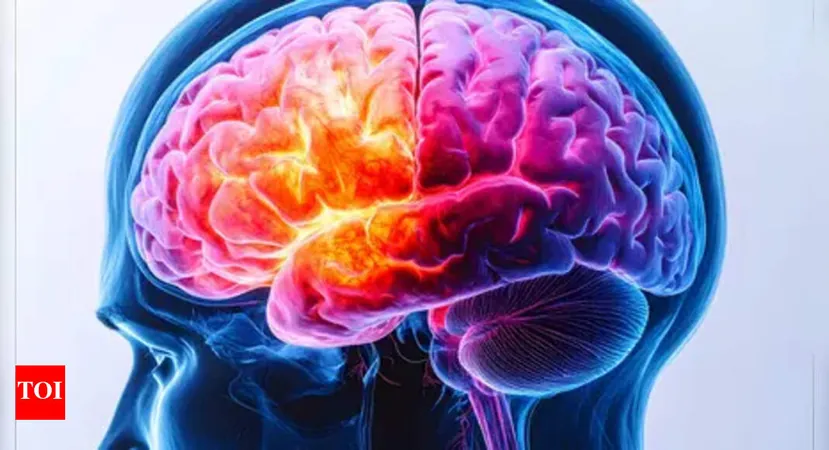
Unlocking Hope: The Urgent Call for Early Alzheimer’s Diagnoses and Social Engagement
2025-09-20
Author: Ming
In Panaji, a touching story unfolds as Donna Noronha recounts her emotional journey caring for her mother, a vibrant woman diagnosed with Alzheimer’s in 2017. The path has been anything but smooth, as early symptoms were easily brushed aside, overshadowed by her mother’s strong-willed nature.
“She would get irritable, frequently misplace items, and point fingers at others, but we dismissed it,” Noronha explained. This denial reached a tipping point when her mother, convinced there was no food at home, would venture out daily for groceries.
Noronha felt torn, wanting to respect her mother’s independence while needing to intervene. She even enlisted local shopkeepers to alert her if her mother encountered difficulties. It’s a delicate dance of care and autonomy, made all the more challenging by her mother's occasional abuse. "It's overwhelming, but I remind myself it’s the disease speaking, not her,” she shared.
According to Dr. Teresa Ferreira, leading neurologist at GMC, greater awareness is crucial in combating Alzheimer’s, which strikes an alarming number of families. The GMC alone sees about five new dementia diagnoses weekly, with four being Alzheimer’s cases. Shockingly, 60% of these patients present with moderate to severe symptoms.
“Too often, families brush off dementia signs as mere aging,” Dr. Ferreira warned. "Early detection can extend patients' ability to live independently for years.” She emphasized the importance of managing coexisting health conditions like diabetes and hypertension to prevent exacerbating the disease’s progression.
Dr. Peter Castelino from COOJ Mental Health Foundation echoed these sentiments. While dementia is often linked to the elderly, individuals in their 40s and 50s are increasingly diagnosed, frequently tied to chronic conditions like alcoholism or brain injuries. He urges an active lifestyle: "Diet, exercise, and social interactions are essential for cognitive health. It’s never too late to learn something new.”
A troubling aspect is the growing social isolation experienced by seniors. "Lack of social interaction can accelerate cognitive decline,” Dr. Ferreira pointed out, advocating for community care centers to foster senior engagement.
Awareness of mental health issues is also vital. Castelino noted that many elderly individuals suffering from sleep disturbances often face deeper emotional struggles, such as sadness and disinterest in daily life—symptoms that should not be mistaken for normal aging.
Ultimately, Alzheimer’s is a devastating neurodegenerative condition that can progress rapidly without intervention. Early diagnosis and social interaction not only help improve patients’ quality of life but can also extend their independence. Together, through awareness and cooperation, we can better navigate the complexities of Alzheimer’s and support those affected.

 Brasil (PT)
Brasil (PT)
 Canada (EN)
Canada (EN)
 Chile (ES)
Chile (ES)
 Česko (CS)
Česko (CS)
 대한민국 (KO)
대한민국 (KO)
 España (ES)
España (ES)
 France (FR)
France (FR)
 Hong Kong (EN)
Hong Kong (EN)
 Italia (IT)
Italia (IT)
 日本 (JA)
日本 (JA)
 Magyarország (HU)
Magyarország (HU)
 Norge (NO)
Norge (NO)
 Polska (PL)
Polska (PL)
 Schweiz (DE)
Schweiz (DE)
 Singapore (EN)
Singapore (EN)
 Sverige (SV)
Sverige (SV)
 Suomi (FI)
Suomi (FI)
 Türkiye (TR)
Türkiye (TR)
 الإمارات العربية المتحدة (AR)
الإمارات العربية المتحدة (AR)